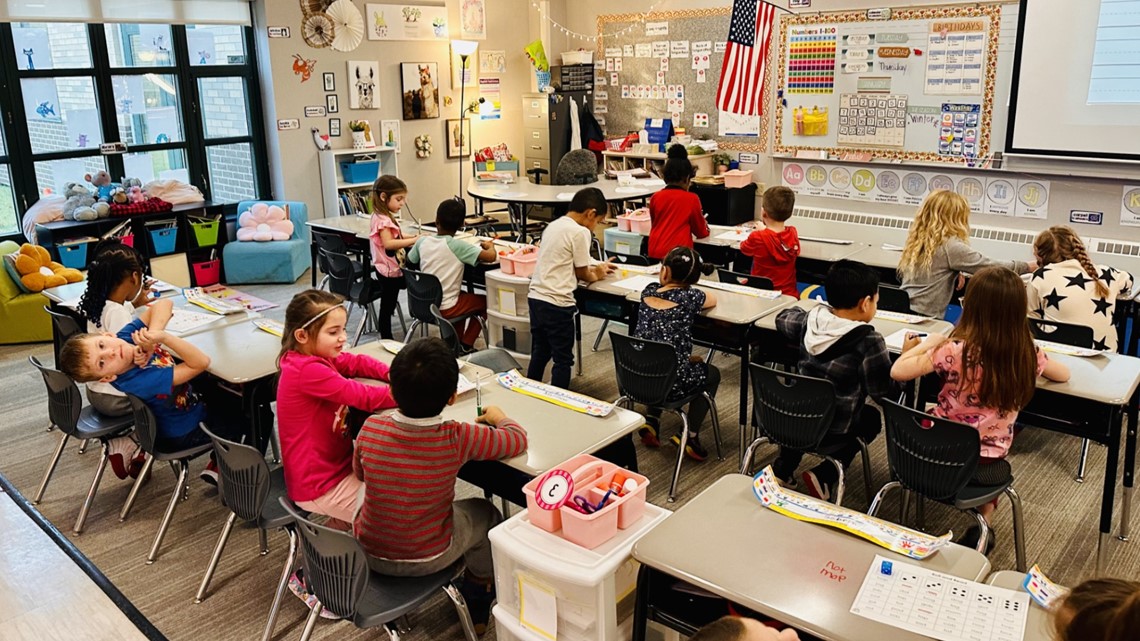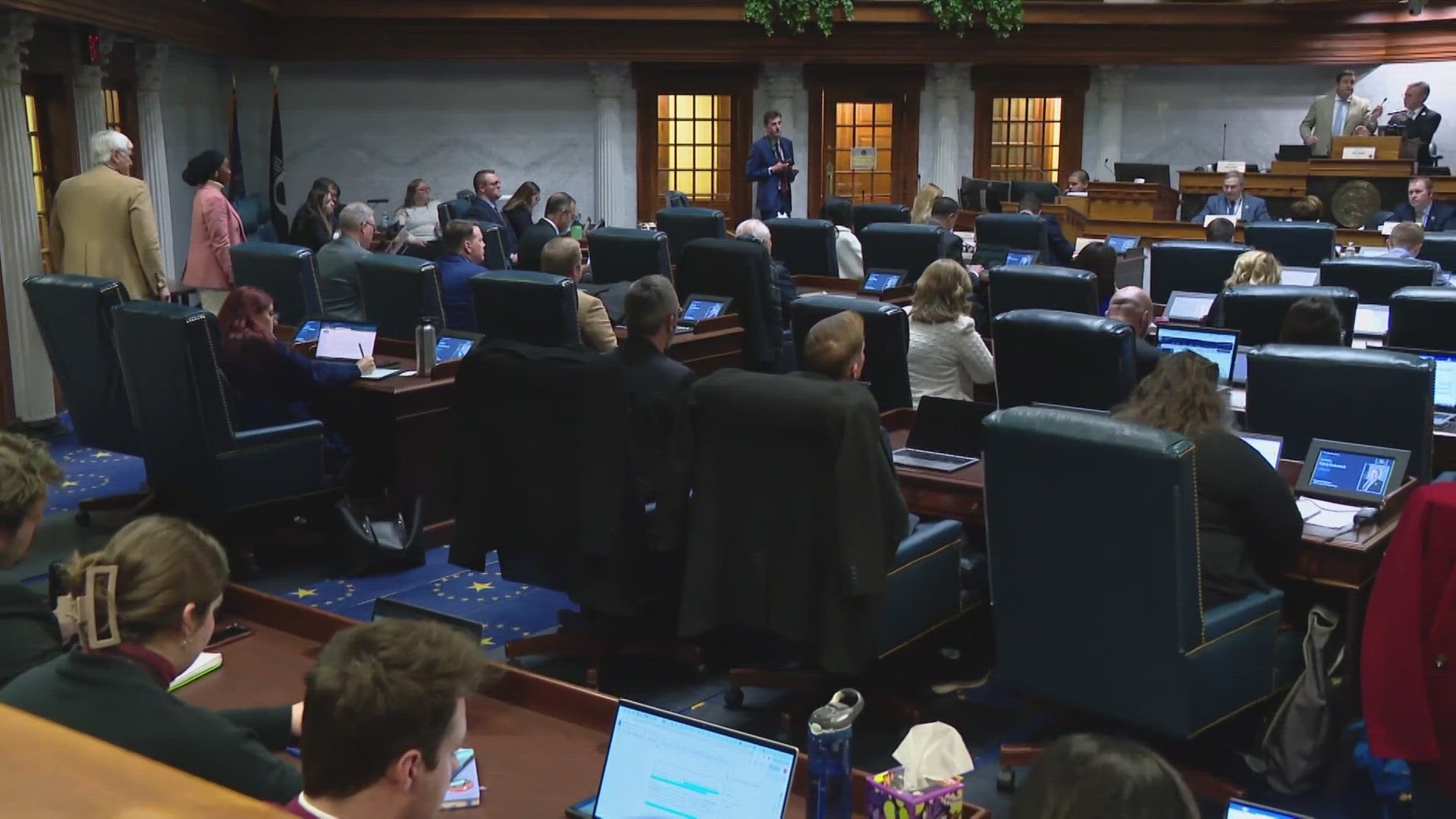INDIANAPOLIS — Education advocates, faith leaders and the state’s largest teachers’ union were at the Statehouse Tuesday to voice their concerns about a bill that recently passed out of the Senate.
Their focus was on Senate Bill 1 that deals with how well Indiana third graders are reading. The statistics don’t paint a great picture. According to the Indiana Department of Education, one in five kids can’t read by the time they finish third grade.
Education advocates agreed that kids need reading help, but how to best give that help to them has become an ongoing debate.
“We stand today at a crossroads in the education of our youngest Hoosiers,” Keith Gambill, president of the Indiana State Teachers’ Association, told those gathered.
Gambill and education advocates said they agreed with lawmakers that there’s a problem and something needs to be done about it.
“This is not an academic issue. It is a matter that affects the future successes of our children in education and in life,” Gambill said.


When it comes to setting students up for that success, those who gathered Tuesday said they didn’t think holding kids back a grade if they were struggling to read was the answer.
“We do think the bill places too much of an emphasis on retention, and that’s the part we’d like to see adjusted,” Gambill said.
Under Senate Bill 1, all students would take the IREAD test in second grade, instead of third grade, which is what’s required now. According to the Indiana Department of Education, 60% of students are already taking the test in the second grade.
Students who fail IREAD in the second grade could get reading help. If they fail the test again the next year, in third grade, students would be held back.
Education advocates worry what that will mean for teachers and class size.
“How are you going to rebalance teaching? We know these are kids that already need support, as well as all of the other fresh third graders that need that reading support,” said Rachel Burke, with the Indiana Parent Teachers Association.
There are some exceptions under Senate Bill 1 for students who fail the test and have special needs or have English as a second language.
Senate Bill 1 also creates an appeals process for parents who don’t want their child held back.
Right now, that decision is made by the teacher, school administration and parents together.
Education advocates say instead of focusing on retention, more emphasis needs to be put on identifying struggling readers before kindergarten, making sure schools have updated reading materials and technology, along with support staff like reading specialists.
“We do applaud the spotlight that’s being placed on this issue, and we think it’s important for us to get it right,” Gambill said.
What that looks like, though, is different depending on who you ask.
Tuesday’s gathering comes a day before the House Education Committee is expected to hear testimony on Senate Bill 1 Wednesday morning. Both Democrats and Republicans have said literacy is a top priority this legislative session. It’s also on Gov. Eric Holcomb’s agenda.

